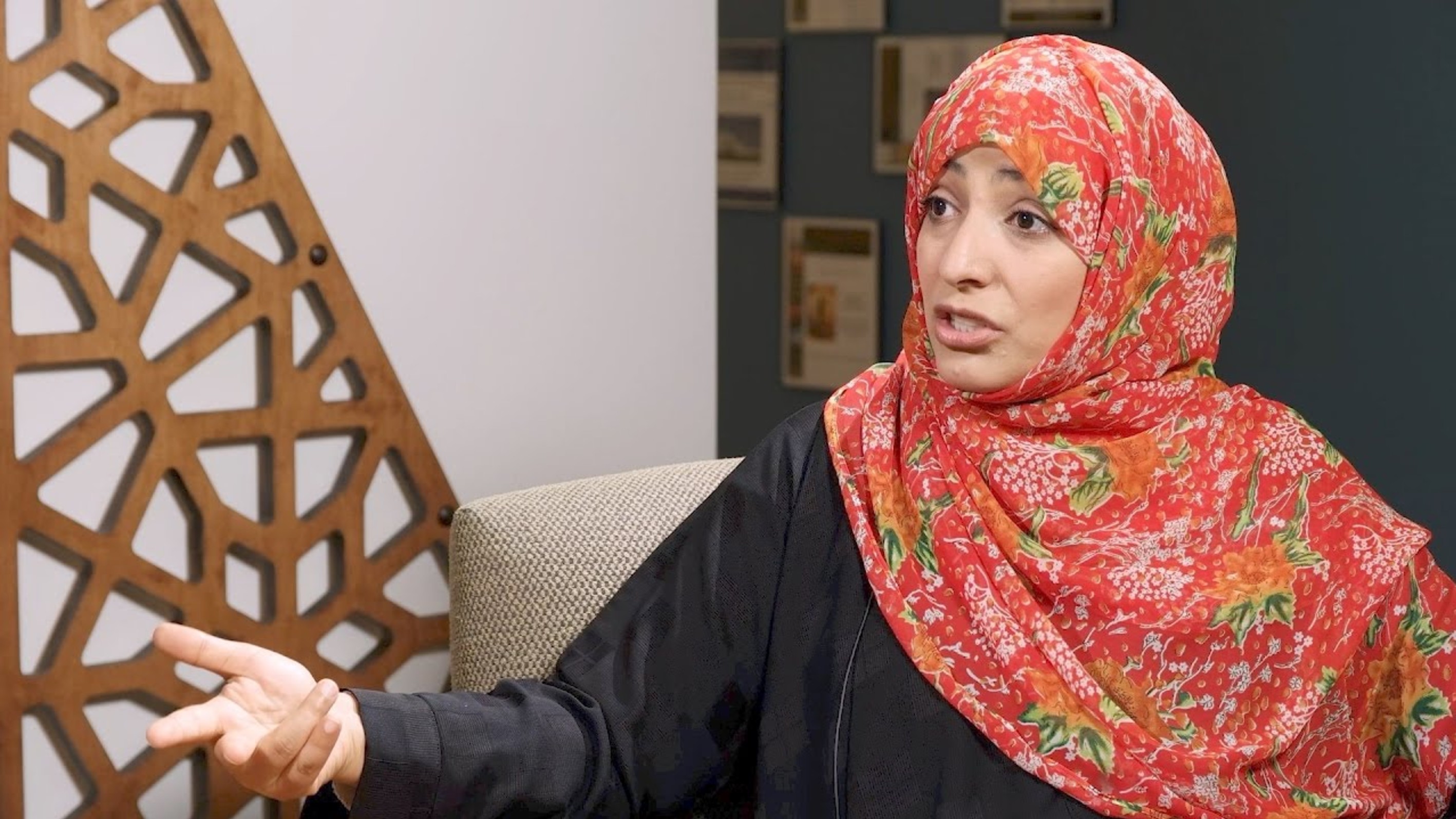
Tawakkol Karman, the 2011 Nobel Peace Prize laureate, spoke with JMEPP’s Blaire Byg about women’s role in the Arab Spring, the ongoing war in Yemen, and the future of her country
Hallo and welcome to the Middle East question-and-answer series presented by the Middle East initiative and Harvard journal for Middle eastern politics and policy.
My name is Blaire Byg.. I’m a student at Harvard Center for Middle Eastern studies, and I’m an editor at the journal for Middle Eastern politics and policy. Today, I’m joined by Ms. Tawakkol Karman who is a Nobel Peace Laureate and a Yemeni activist.
Thank you for joining us Ms. Tawakkol Karman
Tawakkol Karman: thank you, thank you so much.
What did you think the role of Yemen was in the protests, the 2011 protests in Yemen, and what sort of contributions that you feel women made to these protests in the Arab Spring?
Tawakkol Karman: there is a deep and very strong connection between women’s movement and the Yemeni Spring there. There were and are still because the women in Yemen always asked and struggle for human rights in general and women’s rights in particular, and did a lot of things and a lot of pressure against the ex-ruling party and the ex-president- the ousted president- to achieve, you know, some improvement and the women’s right and also in the public life and also against corruption and etc. but because the ex-regime and the ousted president didn’t answer the demands of women and human rights defenders and of all the parties and movement that asks for reforms, then people decided to make the revolution. So women at that time were at the first line of revolution, and she was at the first line of the human rights movement.
She did a great role on leading the revolution on leading the change. She left the seats of the victims to the seats of the leaders, so she was the real leader and the most effective figure of the Yemeni society as women for the making change against you know the dictator Ali Abdullah Saleh. The same thing in the transitional period, she always was leader she participated in all the most important fields on making and writing the future of Yemen through the National dialogue conference and also the draft of constitution.
So women in Yemen and as well women in the Arab Spring countries really give a very strong image about the real role of women when she participated in public life. She was the leader and she continues to lead her country to salvation to be against the dictator and against the counter-revolution and the military coup and she is still under the revolution until she, I mean we succeed in achieving all the goals of the revolution, which are democracy, equality, human rights, accountability and rule of law.
Reporter: and do you think there is some chance of the situation in Yemen improving in the next few years, or what do you see is the future for the democratic movement in Yemen?
Tawakkol Karman: yes it is very sad that we see all this killing, all of this war and fires everywhere. It’s really paining us. But at the same time, we don’t lose our hope, and we don’t lose our vision, and we don’t lose our dream. So, yes, with all this pain we know that there is light at the end of this dark tunnel. So this is again this is what happened in every great revolution and every great country. and even in all those development countries, they did not reach to this moment of democracy, prosperity without these you know the sacrifices of their founders, of the previous generation. So I’m so optimistic. Yes I’m sad now, but also I’m so optimistic because I know that all these sacrifices, we will not lose all the sacrifices. These sacrifices will lead us to the freedom and dignity and democracy and peace. I’m sure for that, and you will see how those countries will be strong in the future, in the very close future, because people are still dreaming and are struggling and are still sacrificing for their dreams.
Thank you so much Ms. Karman, it has been pleasure talking to you!
To read interview in Hksjmepp click here
